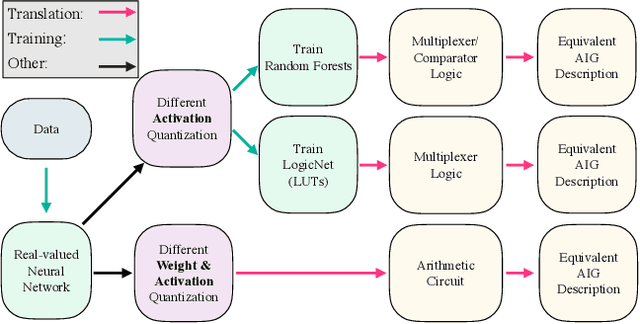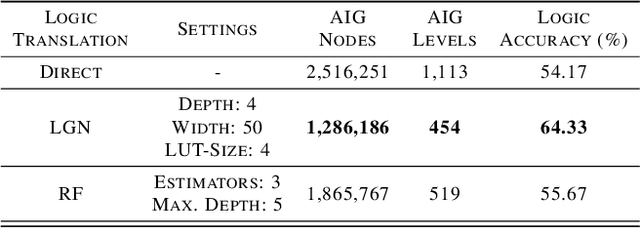Making Logic Learnable With Neural Networks
Paper and Code
Feb 18, 2020



While neural networks are good at learning unspecified functions from training samples, they cannot be directly implemented in hardware and are often not interpretable or formally verifiable. On the other hand, logic circuits are implementable, verifiable, and interpretable but are not able to learn from training data in a generalizable way. We propose a novel logic learning pipeline that combines the advantages of neural networks and logic circuits. Our pipeline first trains a neural network on a classification task, and then translates this, first to random forests or look-up tables, and then to AND-Inverter logic. We show that our pipeline maintains greater accuracy than naive translations to logic, and minimizes the logic such that it is more interpretable and has decreased hardware cost. We show the utility of our pipeline on a network that is trained on biomedical data from patients presenting with gastrointestinal bleeding with the prediction task of determining if patients need immediate hospital-based intervention. This approach could be applied to patient care to provide risk stratification and guide clinical decision-making.
 Add to Chrome
Add to Chrome Add to Firefox
Add to Firefox Add to Edge
Add to Edge